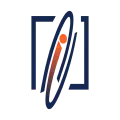Joining Fink
If you want to know more about Fink and our recent releases and science results, you can follow us on Linkedin and check our news.
You can join the Fink collaboration by filling this form. You will be then subscribed to our mailing list and receive relevant news and information about our general meetings.
If you have already a science project in mind (not necessary to join Fink), you can also submit a Fink community project.
What are Fink community projects?
A Fink community project is a self-governed group of one or more people, who agrees on producing deliverables which can add value to the Fink broker. Examples of deliverables are (non-exhaustive):
- Fink filter, that is implementation of series of selection cuts for given science goal(s)
- Fink science module, that is implementation and testing of added value method (e.g. algorithm) within Fink infrastructure.
- Software/algorithm (new software or algorithm integrated into Fink’s infrastructure or in any of its components).
- science analysis
- outreach activities
- teaching/formation (enabling others to contribute)
Each community project team is completely self-governed (groups are free to decide on how they should organize management, work, meetings and how they choose team members). Fink projects can be transverse (covering several scientific or technological themes), and there can be several Fink projects per themes. Fink projects are responsible for their work, and get full credits for their results.
How to propose a new Fink community project?
Anyone wishing to propose a new project must fill the subscription form, and the Fink management team will organise a meeting to provide information on the process. During the creation phase of a project, Fink management can help a candidate project with:
- Logistic help in defining the project deliverable.
- Feedback for feasibility, impact, resources, timeline.
You can contact us at contact(at)fink-broker.org for more information.
Publication Policy
Each Fink community project is responsible for defining its own publication policy (writing process, authorship, …), and scientific papers written inside projects are not obliged to enter a collaboration-wide review. However, a project may voluntarily ask for collaboration review, in each case a temporary team of reviewers will be assembled by the management team to perform such tasks. All papers and deliverables should cite Fink and include the acknowledgment:
This work was developed within the Fink community and made use of the Fink
community broker resources. Fink is supported by LSST-France and CNRS/IN2P3.
